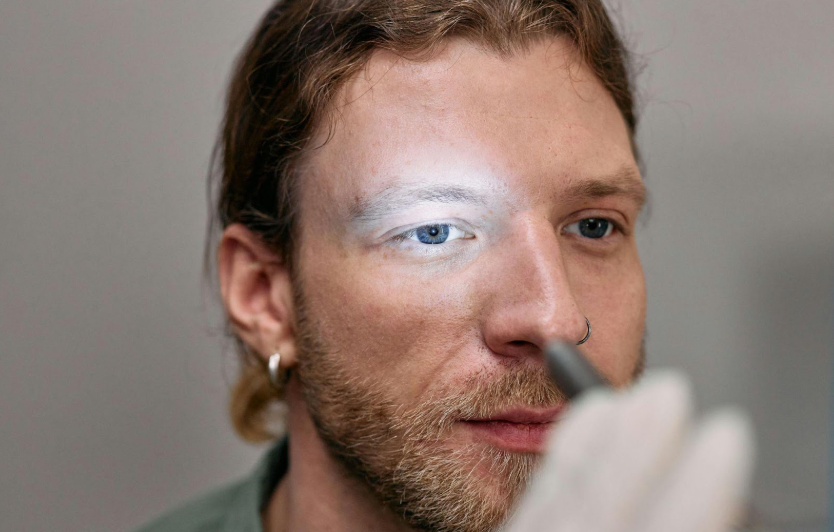Seasonal Eye Safety: Can My Eyes Get Sunburned?
You know that you need to protect your skin from the sun’s rays during summer, but you may not realize that your eyes need similar protection. Sun exposure can affect the surface of your eyes the same way it affects your skin, resulting in eyes that feel sunburned. Fortunately, there are steps you can take to protect your eyes and keep them comfortable all summer long.
Sunburned eyes are caused by light from surfaces such as water and sand being reflected into your eyes. It can also be caused by man-made sources such as tanning and welding equipment. Common symptoms include redness and pain. The best prevention is UV-absorbing sunglasses and the condition can be treated with over-the-counter medicines.
Can My Eyes Get Sunburned?
Yes, your eyes can get sunburned and it’s much easier than you may think. Also known as photokeratitis , sunburned eyes are a painful condition caused by overexposure to UV (ultraviolet) rays. These rays are emitted by the sun, but they can also come from man-made sources. Fortunately, you can protect your eyes by taking a few easy precautions.
What Is Photokeratitis?
According to the American Academy of Ophthalmology ( AAO ), photokeratitis affects the thin surface layer of your eye known as the cornea which is the thin layer that covers your eye. It also affects the conjunctiva , which is the clear tissue that covers the white part of your eye and inside of your eyelids.
What Causes It?
Photokeratitis is specifically caused by light being reflected by another source into your eyes. This usually occurs outdoors since most cases are caused by UV rays sent by the sun. Common reflective surfaces during the summer include water and sand.
You can also develop the condition by staring at the sun or at solar eclipses without special devices. Solar eclipses can also burn your retina, leading to long-term issues beyond what temporary cornea damage can cause.
Photokeratitis can also be caused by man-made sources. This is usually due to UV exposure from:
- Tanning beds
- Tanning lamps
- Arc welding
Make sure to wear protective eyewear when spending time outside. The same goes for activities where you will be exposed to man-made UV rays such as tanning equipment and welding. Protective eyewear will help your eyes stay comfortable as well as protect your long-term vision.
Click here to learn how UV rays can damage your eyes and vision!
Snowblindness: A Surprising Form of Photokeratitis
People tend to associate sunburns with spring and summer, but photokeratitis can strike any time of year. That’s because the sun’s rays can be reflected by a wide variety of surfaces, making it important to wear eye protection all year long. This is true for winter when snow and ice can also reflect the sun’s rays directly into your eyes, irritating the cornea and conjunctiva.
While more prevalent closer to the North and South Poles, your risk of photokeratitis during winter also goes up in higher elevations. This is an important factor to consider if you’re an avid hiker or camper who loves spending time in the mountains. The air is thinner at higher elevations, leaving you less protected from the sun’s ultraviolet rays.
It’s important to keep in mind that snowblindness isn’t solely caused by UV rays. The condition can also be caused by the cornea’s surface becoming frozen, as well as extreme dryness due to a lack of moisture in the air. It’s important to always wear eye protection this time of year when skiing, mountain climbing, snowmobiling, and engaging in other similar activities.
Photokeratitis Symptoms
Sunburned eyes have similar symptoms to sunburned skin such as pain and redness of the eyes . Other common symptoms include:
- Blurred vision
- Eyes feeling gritty
- Light sensitivity
- Seeing halos around lights
- Twitching eyelids
- Watery eyes
- Headaches
- Small pupils
In rare cases, patients may experience temporary vision loss or color changes to their vision. Symptoms tend to become worse the longer your eyes have been exposed to UV light. They also tend to not become apparent until later on so it’s important to wear eye protection when necessary so you never have to deal with them.
Preventing Sunburned Eyes
It’s much easier to prevent a sunburn on your eyes than having to go through the process of treating a sunburn. In this case, that means wearing a quality pair of sunglasses or goggles that absorb UV rays from the sun or other sources. Be sure to opt for lenses that absorb 99 – 100% of UV light for the best protection possible.
Other factors to consider when buying sunglasses include:
- Lens quality
- Fit
- Lens material
You want quality lenses that won’t alter your vision while wearing them. Frames should also have a snug fit that doesn’t allow any light to reach your eyes. You can find lenses in a variety of materials to fit your needs. This includes shatterproof and polycarbonate lenses that fit an active lifestyle.
To learn more about how to choose a pair of prescription sunglasses, click here !
Treating Sunburned Eyes
Most photokeratitis symptoms will resolve as the eyes heal naturally. In the meantime, it’s important to soothe your symptoms so your eyes feel better while they heal. To start, avoid bright lights and take out your contacts if you wear them. You should also avoid rubbing your eyes since this will only irritate them more.
In most cases, you can relieve your symptoms by:
- Applying a cold washcloth to your closed eyes
- Using artificial tears
- Taking over-the-counter pain relievers such as ibuprofen
If your symptoms last more than a few days then you will need to contact your eye doctor. They will examine your eyes and provide prescription eye drops if there is a risk of infection.
Are you experiencing long-term symptoms of sunburned eyes? Contact us today to schedule your appointment!
Photokeratitis is the result of the eyes experiencing prolonged UV light exposure. Light can be reflected from surfaces such as sand, water, and snow, as well as from man-made sources. Symptoms are similar to sunburned skin with pain and redness. Sunburned eyes can be prevented with UV-absorbing sunglasses and treated with over-the-counter medications.
Baptist Eye Surgeons is an ophthalmological practice in Knoxville, TN, and Morristown, TN. Give us a call at 865-579-3920 for more information or to schedule an appointment .


MORRISTOWN
SEVIERVILLE
TENNESSEE VALLEY - LASER CENTER
TENNESSEE VALLEY - EYE CENTER



